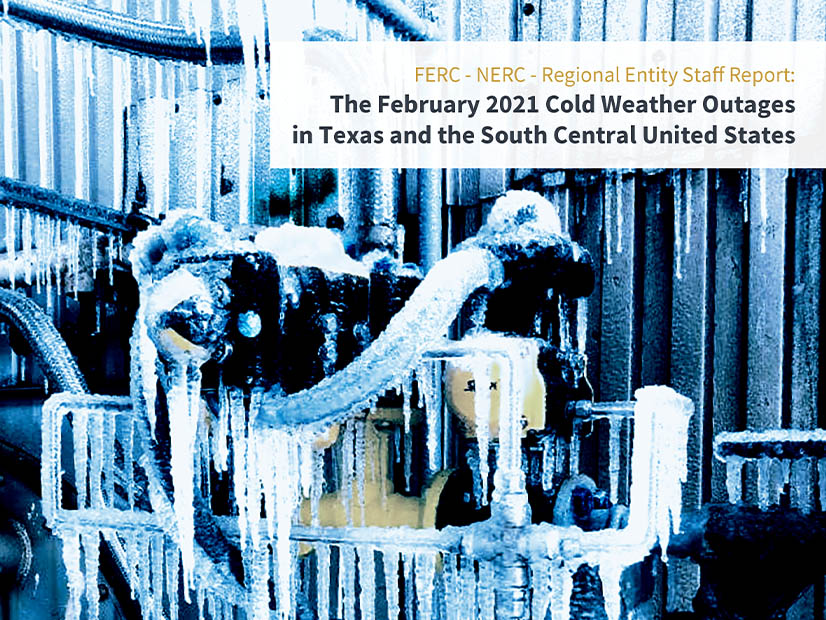FERC staffers praised ERCOT operators Tuesday for preventing a worse catastrophe during last year’s devastating winter storm.
Reacting to criticism of ERCOT during the immediate aftermath of the storm’s extended outages and financial and human damage, Heather Polzin, legal counsel and reliability coordinator for FERC’s Office of Enforcement, called out the actions within the grid operator’s control center that prevented a total collapse of the system when the grid’s thermal generation failed to show up.
“The actual ERCOT operators that were on duty that day did a tremendous job in keeping the grid operational in the face of this challenge,” she said during a presentation before the Texas Reliability Entity.
Polzin was joined by the commission’s David Huff and NERC’s Kiel Lyons as they reviewed their joint report on the February 2021 storm, published in November, during a Talk with Texas RE webinar. The report detailed how the severe cold affected bulk electric system reliability, leading to widespread generation outages, derates or failures to start and forcing more than 23 GW of manual firm load shed. (See FERC, NERC Release Final Texas Storm Report.)
Huff, an electrical engineer, said a team that included regional entities’ staff “deeply” investigated the event, which also led to load sheds in MISO and SPP. He said each of the grid operators had only nine minutes to prevent an additional 17 GW of generation units from tripping offline and leading to blackout conditions.
“In all three footprints, the operators coordinated through these extreme emergency conditions,” Huff said. “The ERCOT operators, from our view, took the steps necessary to keep the balance of generation and load to avoid further emergency conditions or possible blackout conditions. The team really thought that the operators took the appropriate measures and maintained reliability.”
As others have said since early last year, Huff said ERCOT’s lack of sizeable interconnections with the rest of the nation’s grid hampered its ability to import power from the east to meet demand, while MISO and SPP were able to import more than 13 GW of power from the rest of the Eastern Interconnection.
“ERCOT … thus needed to shed the greatest amount of firm load to balance electricity demand with the generation units that were able to remain online,” Huff said.
The storm led to unprecedented generation shortfalls, according to the report, with 1,045 individual units experiencing 4,124 outages, derates or failures to start. Gas-fired generators accounted for most of the units knocked offline with 604, or 58% of all units.
The report team found that fuel issues were to blame for 31% of the outages, derates or failures to start, with 87% of the fuel supply problems related to the natural gas supply. The storm caused the largest monthly decline of natural gas production on record; between Feb. 8 and 17, total natural gas production fell by 28% in the Lower 48 and 70% in Texas (as compared to January average).
Polzin said recurring problems between gas and electric interactions have become common during recent cold-weather events.
“You see demand for natural gas from the natural gas-fired generators increasing dramatically during a cold weather event like this,” she said. “At the same time, you may see demand from local distribution companies for local heating supply increasing dramatically, while at the same time, you may see gas supply drop off because of the weather.”
The report makes a number of recommendations to increase coordination between the electric and gas industries. It recommends legislators and regulators with jurisdiction over natural gas infrastructure require the gas infrastructure facilities to have cold-weather preparedness plans, including measures to prepare to operate during a weather emergency. The report also suggests gas entities undertake voluntary measures to prepare for cold weather.
The report team has proposed a forum where those lawmakers and regulators would work with FERC, NERC and the REs to gather input from the grid operators and gas entities identifying concrete actions to improve the gas infrastructure’s reliability and support BES reliability.
FERC is hosting a technical conference April 27-28 on winter readiness measures.




